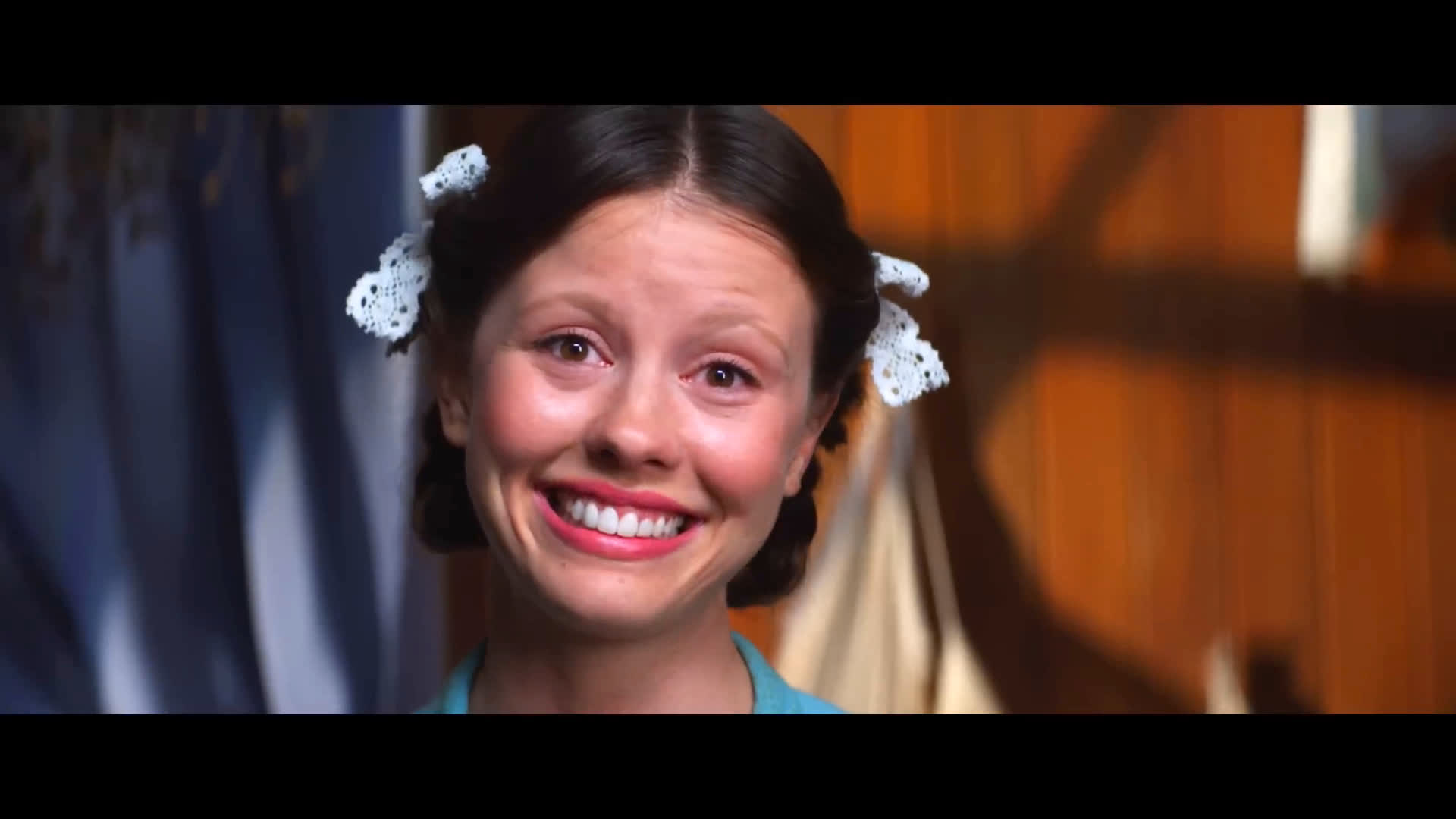X was a spring sensation. Ti West’s conception of that slasher film really was a gift that kept on giving: a well of brilliance. Especially Mia Goth, equally compelling in 2 different roles, young and old. Goth’s elder Pearl gets her own origin story in the movie titled for her, something the character would literally kill for as X made clear. Tread lightly, Ti, better keep Pearl happy or else.
Only pulling single duty on this one, Mia Goth takes us back to 1918. Pearl’s upbringing, frankly explains a lot. While Howard is off fighting World War I, Pearl is stuck at home, caring for her immobile father (Matthew Sunderland) and her rigid caustic mother Ruth (Tandi Wright). Her only method of temporary escape is the moving pictures, where she spends time with the movie projectionist (David Corenswet). Frustrated and stuck, Pearl learns from her sister-in-law Mitsy (Emma Jenkins-Purro) that there’s a church dance competition coming soon, which the isolated Pearl sees as her ticket to fame and happiness.
For a prequel to a horror/slasher film, Pearl is shockingly low on scares. I guess Ti West figured he couldn’t attempt to recreate the perverse magic that was X. Or maybe he was listening to Kanye’s My Beautiful Dark Twisted Fantasy and wrote his movie version. There’s some very obvious callouts to famous films of the past, placing Pearl on an adventure for the audience, but a much more strange, creepy, and sometimes scary adventure. The choices West and Goth make give the film this uneasy uncomfortable tone that makes the audience fidget in their chairs, afraid to not only see the depths of Pearl’s humanity, but also what happens when others see it to. If X taught us anything, it’s that when Pearl doesn’t get what she wants, bad things start to happen, and thanks to a terrific final 30 minutes Ti West makes the bad stuff a slow motion car wreck of delusion and grotesque terror, paying off the groundwork the movie lays early on.
And that groundwork is all due to Mia Goth. Initially playing guileless and impressionable, Goth slowly plunges us into the deep dark recesses of what goes on in her mind, cooped up, unable to live the life she wants. After a year in 1918 Pearl’s life wearing a mask to deal with the Spanish Influenza, Goth shows how Pearl has simply grown tired of all forms of mask wearing, of which masking has lead to a life of empty promises and unfulfilled dreams. In addition, Goth sells the audience how the movies helped feed Pearl’s delusion about life outside of her pretty terrible existence, pitching her on the positives while dealing her the worst hand imaginable to try to become famous. Plus, that frustrated isolation and helicopter parenting from momma created this toxic recipe of influences that could only lead Pearl further down the dark parts of her psyche, alienating her further from normal society. All of those complicated feelings can be summed up by an incredible Goth monologue and the Call Me By Your Name like ending, with Goth encapsulating Pearl with one single, equally heartbreaking and weird shot.
One of the movies playing at Pearl’s theater is 1917’s Cleopatra, a famous, lavish film enjoying its heyday but becoming lost to time thanks to decay and indifference. Not too subtle Ti West. I’d almost rather you have had Pearl meet Gloria Swanson’s Norma Desmond instead; that’s a nice kindred spirit for poor Pearl, who never even got a chance to see the pictures become small.

